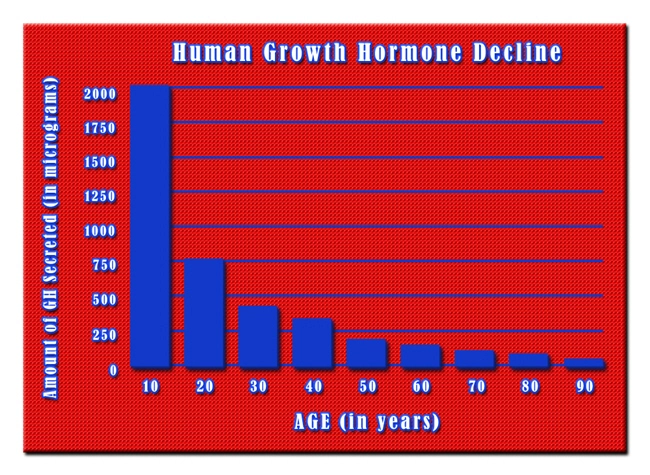
Introduction to Male Insomnia and Endocrinology
Insomnia, a prevalent sleep disorder, affects a significant portion of the American male population, leading to daytime fatigue, mood disturbances, and decreased quality of life. While various factors contribute to insomnia, the role of endocrinology, the study of hormones and their disorders, has garnered increasing attention in recent years. Hormonal imbalances can significantly influence sleep patterns, and understanding this relationship is crucial for developing effective treatment strategies tailored to American men.
The Link Between Hormones and Sleep
Several hormones play a pivotal role in regulating sleep-wake cycles. Melatonin, often referred to as the "sleep hormone," is produced by the pineal gland and helps signal the body when it's time to sleep. Cortisol, known as the "stress hormone," follows a diurnal pattern, with levels typically peaking in the morning and declining throughout the day. Testosterone, a key male hormone, also exhibits a circadian rhythm, with levels typically highest in the morning. Disruptions in these hormonal patterns can lead to sleep disturbances, including insomnia.
Common Hormonal Imbalances in American Men
American men may experience various hormonal imbalances that contribute to insomnia. Low testosterone levels, which can occur naturally with aging or be exacerbated by lifestyle factors such as obesity and poor diet, have been linked to sleep disturbances. Similarly, elevated cortisol levels, often associated with chronic stress, can disrupt sleep patterns. Thyroid disorders, such as hypothyroidism or hyperthyroidism, can also impact sleep quality by affecting metabolism and energy levels.
Endocrinological Approaches to Treating Male Insomnia
Endocrinologists in the USA are increasingly incorporating hormonal assessments into their approach to treating male insomnia. By identifying and addressing underlying hormonal imbalances, they can develop targeted treatment plans that not only improve sleep but also enhance overall health and well-being.
Hormone Replacement Therapy
For men with clinically low testosterone levels, hormone replacement therapy (HRT) may be considered. HRT can help restore normal testosterone levels, potentially improving sleep quality and reducing insomnia symptoms. However, HRT should be approached cautiously, as it carries potential risks and side effects, and should be closely monitored by a healthcare professional.
Melatonin Supplementation
Melatonin supplements are another option for men struggling with insomnia. By helping to regulate the sleep-wake cycle, melatonin can be particularly beneficial for individuals with delayed sleep phase syndrome or those who work irregular hours. However, it's essential to use melatonin under medical supervision, as inappropriate use can lead to dependency or disrupt natural melatonin production.
Lifestyle Modifications
In addition to medical interventions, endocrinologists often recommend lifestyle modifications to support hormonal balance and improve sleep. Regular exercise, a balanced diet, stress management techniques, and maintaining a consistent sleep schedule can all contribute to better hormonal regulation and improved sleep quality.
The Importance of Comprehensive Care
Treating male insomnia from an endocrinological perspective requires a comprehensive approach. Collaboration between endocrinologists, sleep specialists, and primary care physicians is crucial to address the multifaceted nature of insomnia. By considering the interplay between hormones, lifestyle factors, and other potential contributors to sleep disturbances, healthcare providers can develop personalized treatment plans that effectively address the unique needs of American men.
Conclusion: The Future of Endocrinology in Male Insomnia Treatment
As research continues to uncover the complex relationship between hormones and sleep, the role of endocrinology in treating male insomnia in the USA is likely to expand. By integrating hormonal assessments and targeted interventions into sleep medicine, healthcare providers can offer more effective and personalized solutions for American men struggling with insomnia. As awareness grows and treatment options evolve, the future holds promise for improved sleep health and overall well-being among this population.
Contact Us Today For A Free Consultation
Dear Patient,
Once you have completing the above contact form, for security purposes and confirmation, please confirm your information by calling us.
Please call now: 1-800-380-5339.
Welcoming You To Our Clinic, Professor Tom Henderson.

- Hormonal Imbalances and Sleep Disorders: Impact and Interventions for American Men [Last Updated On: March 16th, 2025] [Originally Added On: March 16th, 2025]
- Hormonal Changes in American Men Over 50: Impacts and Management Strategies [Last Updated On: March 17th, 2025] [Originally Added On: March 17th, 2025]
- Endocrinology's Role in Weight Management for American Males: Hormones and Strategies [Last Updated On: March 17th, 2025] [Originally Added On: March 17th, 2025]
- Vitamin D's Crucial Role in Endocrine Health for American Males [Last Updated On: March 18th, 2025] [Originally Added On: March 18th, 2025]
- Autoimmune Endocrine Disorders: Symptoms, Diagnosis, and Treatment for American Males [Last Updated On: March 19th, 2025] [Originally Added On: March 19th, 2025]
- Diet's Impact on Endocrine Health in American Men: Testosterone, Thyroid, Insulin, Adrenals [Last Updated On: March 19th, 2025] [Originally Added On: March 19th, 2025]
- Managing PCOS in Transgender American Men: Endocrinological and Holistic Approaches [Last Updated On: March 19th, 2025] [Originally Added On: March 19th, 2025]
- Lifestyle Choices and Their Impact on Endocrine Health in American Men [Last Updated On: March 19th, 2025] [Originally Added On: March 19th, 2025]
- Endocrinology's Role in Managing Chronic Fatigue in American Males: Hormonal Insights [Last Updated On: March 20th, 2025] [Originally Added On: March 20th, 2025]
- Endocrinology's Role in Men's Sexual Health: Understanding and Treating Dysfunction [Last Updated On: March 21st, 2025] [Originally Added On: March 21st, 2025]
- Endocrine Health and Cancer Risk in American Men: A Comprehensive Overview [Last Updated On: March 22nd, 2025] [Originally Added On: March 22nd, 2025]
- Endocrinology's Role in Enhancing Athletic Performance for American Male Athletes [Last Updated On: March 22nd, 2025] [Originally Added On: March 22nd, 2025]
- Endocrine Health's Impact on Mental Well-being in American Males [Last Updated On: March 22nd, 2025] [Originally Added On: March 22nd, 2025]
- Alcohol's Impact on Male Endocrine System: Hormones, Health, and Mitigation Strategies [Last Updated On: March 23rd, 2025] [Originally Added On: March 23rd, 2025]
- Smoking's Impact on Endocrine Health in American Men: Hormonal Disruption and Risks [Last Updated On: March 23rd, 2025] [Originally Added On: March 23rd, 2025]
- Endocrinology's Role in Muscle Health for American Males: Hormones and Optimization Strategies [Last Updated On: March 23rd, 2025] [Originally Added On: March 23rd, 2025]
- Endocrine Health and Prostate Cancer: A Vital Connection for American Men [Last Updated On: March 23rd, 2025] [Originally Added On: March 23rd, 2025]
- Endocrine Disruptors: Impact on American Male Health and Mitigation Strategies [Last Updated On: March 23rd, 2025] [Originally Added On: March 23rd, 2025]
- Managing Endocrine Disorders in American Men with Autoimmune Diseases: A Comprehensive Guide [Last Updated On: March 24th, 2025] [Originally Added On: March 24th, 2025]
- Hormonal Imbalances and Male Infertility: Insights and Solutions for American Men [Last Updated On: March 24th, 2025] [Originally Added On: March 24th, 2025]
- Hormonal Impacts on Dental Health in American Men: Testosterone, Diabetes, Thyroid, and Cancer Risks [Last Updated On: March 24th, 2025] [Originally Added On: March 24th, 2025]
- Exercise Benefits for American Males: Enhancing Endocrine Function and Hormonal Balance [Last Updated On: March 24th, 2025] [Originally Added On: March 24th, 2025]
- Endocrine Health and Hearing: Implications for American Males [Last Updated On: March 24th, 2025] [Originally Added On: March 24th, 2025]
- Nutrition's Impact on Endocrine Health for American Males: A Comprehensive Guide [Last Updated On: March 24th, 2025] [Originally Added On: March 24th, 2025]
- Hormonal Influences on Joint Health in American Men: Insights and Management Strategies [Last Updated On: March 24th, 2025] [Originally Added On: March 24th, 2025]
- Managing Endocrine Disorders in American Men with Neurological Conditions: A Comprehensive Approach [Last Updated On: March 25th, 2025] [Originally Added On: March 25th, 2025]
- Hormonal Influences on Skin Health in American Men: A Comprehensive Guide [Last Updated On: March 25th, 2025] [Originally Added On: March 25th, 2025]
- Endocrinology's Role in Managing Gout Among American Males: Hormonal Insights [Last Updated On: March 25th, 2025] [Originally Added On: March 25th, 2025]
- Managing Type 2 Diabetes in American Men: A Comprehensive Approach [Last Updated On: March 25th, 2025] [Originally Added On: March 25th, 2025]
- Stress Impact on Male Endocrine Health: Hormones and Holistic Management Strategies [Last Updated On: March 25th, 2025] [Originally Added On: March 25th, 2025]
- Liver Function's Crucial Role in Endocrine Health for American Males [Last Updated On: March 25th, 2025] [Originally Added On: March 25th, 2025]
- Hormonal Balance and Kidney Health: Critical Insights for American Men [Last Updated On: March 25th, 2025] [Originally Added On: March 25th, 2025]
- Exploring Endocrinology's Role in Managing Male Depression in the USA [Last Updated On: March 25th, 2025] [Originally Added On: March 25th, 2025]
- Endocrine-Gastrointestinal Interplay in American Men: Management and Impact [Last Updated On: March 25th, 2025] [Originally Added On: March 25th, 2025]
- Endocrinology's Impact on Immune Health in American Men: Hormones and Lifestyle [Last Updated On: March 26th, 2025] [Originally Added On: March 26th, 2025]
- Managing Endocrine Disorders and Heart Disease in American Men: Strategies and Insights [Last Updated On: March 26th, 2025] [Originally Added On: March 26th, 2025]
- Endocrine Health and Vision: Key Considerations for American Males [Last Updated On: March 27th, 2025] [Originally Added On: March 27th, 2025]
- Male Eating Disorders: The Crucial Role of Endocrinology in Diagnosis and Treatment [Last Updated On: March 27th, 2025] [Originally Added On: March 27th, 2025]
- Endocrinology's Role in Treating PTSD Among American Males: A Comprehensive Approach [Last Updated On: March 27th, 2025] [Originally Added On: March 27th, 2025]
- Hormonal Imbalances and Foot Health: A Guide for American Men [Last Updated On: March 27th, 2025] [Originally Added On: March 27th, 2025]
- Exploring Endocrinology's Role in Treating ADHD in American Males [Last Updated On: March 28th, 2025] [Originally Added On: March 28th, 2025]
- Exploring Endocrine Treatments for Male Anxiety in the USA [Last Updated On: March 28th, 2025] [Originally Added On: March 28th, 2025]
- Endocrine-Digestive Health Link: Hormones, Disorders, and Holistic Care for American Males [Last Updated On: March 28th, 2025] [Originally Added On: March 28th, 2025]
- Endocrine Disorders in American Men: Dermatological Impacts and Management Strategies [Last Updated On: March 28th, 2025] [Originally Added On: March 28th, 2025]
- Sleep's Crucial Role in Endocrine Health for American Males [Last Updated On: March 28th, 2025] [Originally Added On: March 28th, 2025]
- Endocrine Health Impacts Respiratory Function in American Males: Research and Management Strategies [Last Updated On: March 28th, 2025] [Originally Added On: March 28th, 2025]
- Endocrinology and Hair Health: Hormonal Impacts and Management for American Men [Last Updated On: March 28th, 2025] [Originally Added On: March 28th, 2025]
- Caffeine's Multifaceted Impact on Endocrine Health in American Males [Last Updated On: March 29th, 2025] [Originally Added On: March 29th, 2025]
- Endocrine Health and Nail Changes in American Males: Detection and Management [Last Updated On: March 29th, 2025] [Originally Added On: March 29th, 2025]
- Endocrine Disorders in Men: Managing Impact on Eye Health [Last Updated On: March 29th, 2025] [Originally Added On: March 29th, 2025]









